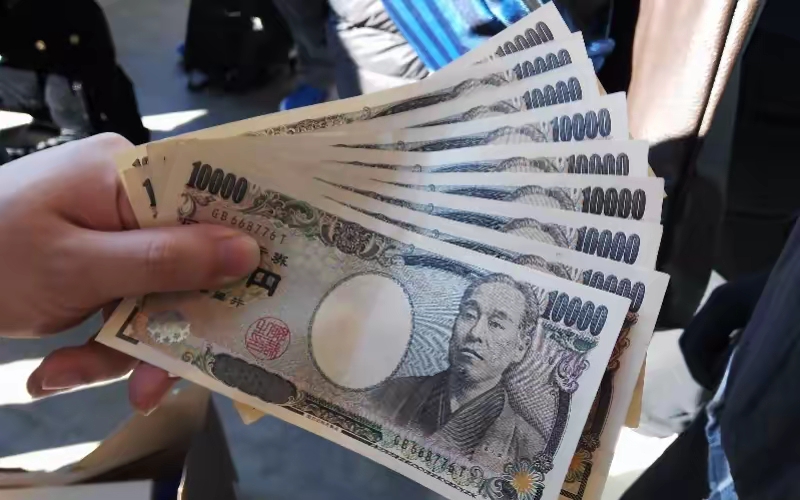
Recently, there have been frequent rumors that Japan will raise interest rates again. Masai Takako, a former member of the Policy Committee of the Bank of Japan, believes that if the economic situation remains largely unchanged, the Bank of Japan may raise its benchmark interest rate to 0.5% by the end of the year.
It is reported that Masai also claimed that due to the continuous rise in prices in Japan over the past two years, inflation expectations for businesses and households have changed, and "the Bank of Japan wants to ensure everything is normal, but at the same time, they must also deal with the side effect of the weakening yen."
As is well known, on March 19th of this year, the Bank of Japan decided to end its 8-year negative interest rate policy and raise short-term bank interest rates from the original -0.1% to the range of 0% to 0.1%. This is the first time in 17 years that the Bank of Japan has raised interest rates since February 2007. The decision of the Bank of Japan has made it the last central bank globally to abandon negative interest rates and put an end to a special era in which global policymakers have attempted to support economic growth through cheap currency and unconventional monetary tools over the past decade.
Due to the fact that the Bank of Japan has been an outlier in the global central bank's policy of maintaining negative interest rates over the past few years, that is to say, Japan is the only country in the world that has maintained negative interest rates for a long time. Therefore, this rate hike marks the official end of the era of negative interest rates worldwide.
However, from a practical perspective, under the harvest of the United States and the strong suppression of the US dollar, the Bank of Japan's interest rate hike has failed to achieve its expected goals and has far from ignited the enthusiasm of financial markets to buy up the yen. As of 14:00 on March 19th this year, the exchange rate of the Japanese yen against the US dollar has fallen instead of rising, and the exchange rate of the US dollar against the Japanese yen has hovered around 150.33. This means that the Japanese yen has once again fallen below the integer level of 150, and is close to the low point of 150.88 this year. This has surprised Japan, but it is also helpless. It seems that Japan's high expectations for interest rate hikes have far from achieving the expected goals.
From a historical perspective, the last round of interest rate hikes by the Bank of Japan was from 2006 to 2007, raising interest rates from 0% to 0.5% in two rounds of 25 basis points. The last round was in 2000, when the Bank of Japan raised interest rates from 0% to 0.25%, with one 25 basis point hike. Both rounds of rate hikes occurred after the last rate hike by the Federal Reserve.
The reasons for this round of interest rate hikes are not complicated: on the one hand, Japan saw a significant increase in worker wages after labor wage negotiations, and on the other hand, inflation was poorly controlled and remained high and persistent.
Every spring, Japanese unions negotiate salaries with companies, which is known as the "spring battle". Therefore, for the Japanese people, in addition to the visible increase in prices, the wage level in Japan is also significantly increasing. The annual "Spring Battle" results released on March 15th this year showed that Japan's largest union, Rengo, had won an annual wage increase of 5.28%, which was higher than last year's 3.8% and the largest increase in 30 years, the highest since 1991. Among them, the average salary increase for small businesses was 3.7%, and the average basic salary increased by 4.42%. This has brought enormous pressure to the Japanese government and businesses.
In this situation, Japan's monetary easing policy will not end with the upcoming interest rate hikes, but will continue. Tomohiro Ota, a senior economist at Goldman Sachs Japan, believes that the Bank of Japan will gradually raise policy interest rates after confirming further evidence of sustainable inflation of around 2%, and raise rates by another 25 basis points in October 2025.
From a practical perspective, the Bank of Japan's policy of raising interest rates will further narrow the interest rate gap between the United States and Japan, to some extent boosting the value of the Japanese yen. However, due to the strong harvest of the United States, as well as the potential impact of Japan's interest rate hikes and US interest rate cuts on global liquidity, the impact of Japan's interest rate hikes on the world is minimal. From the current actual effect, Japan's inflation will not be fundamentally curbed by interest rate hikes. As for the impact on other aspects of the economy, it depends on the strength of Japan's interest rate hikes and the policies and attitudes of the Federal Reserve, which still need further observation.

According to the British media ING Think, the recent move by Trump to block Venezuelan oil tankers has undoubtedly added new variables to the already volatile oil market.
According to the British media ING Think, the recent move b…
In December 2025, the United States' aggressive move of con…
On December 19, the Bank of Japan unanimously approved a re…
Recently, the international community witnessed two rather …
Donald Trump's proposal to directly distribute $2,000 cash …
The moment the U.S. military's F-35A stealth fighter landed…